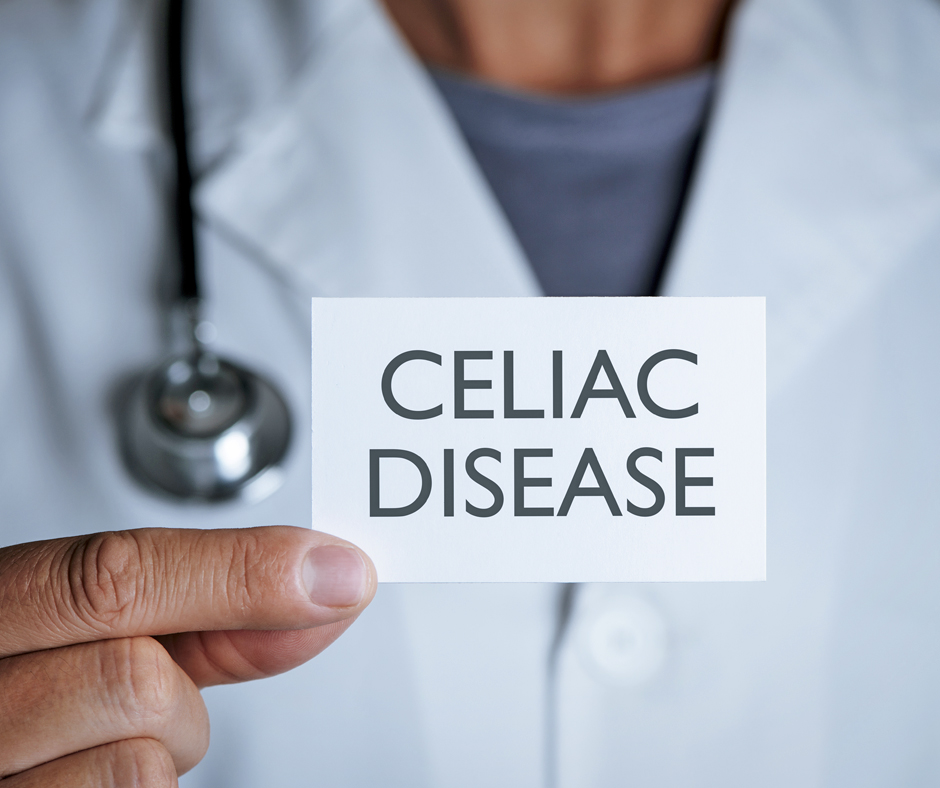There’s always a gurgle in your gut after eating gluten. Does that mean you have celiac disease?
When you’re talking about gut health, gluten is sure to creep into the conversation. Its effect on our health has been a hot topic in health circles for years, with plenty of passion on both sides of the (bread) aisle. But while cutting back on bread and pasta is a hard choice for some, for others it’s much more than a passing buzzword. For those with Celiac Disease, it’s a matter of life and death.
What is Celiac Disease?
Celiac Disease is an autoimmune disorder in which the immune system overreacts to gluten, a group of proteins found in grains like wheat, barley, and rye. When a patient with Celiac Disease eats gluten, the body launches an immune response that causes inflammation in the small intestines. Eventually, these attacks can damage the villi (the thin, hair-like projections that line the small intestine) and the intestinal lining, interfering with nutrient absorption and causing other serious health problems.
Symptoms of Celiac Disease
The symptoms of Celiac Disease vary widely, which makes it difficult to diagnose. The disease may present differently in children and adults, and some patients may have no symptoms at all.
The most common symptoms of celiac disease are gastrointestinal, including:
- Diarrhea
- Abdominal Pain
- Bloating and Gas
- Constipation
- Nausea and Vomiting
- Weight Loss
Some patients with severe cases can also experience non-digestive symptoms of Celiac Disease. These include:
- Anemia
- Headaches
- Fatigue
- Joint Pain
- Skin Rashes
- Peripheral Neuropathy
- Delayed Growth and Development (in Children)
Keep in mind that some people never experience the “classic” symptoms. Some patients experience. only mild diarrhea, while others have severe and prolonged discomfort. Some patients test positive without experiencing any symptoms at all.
If you suspect you or your child have celiac disease and experience any of the above symptoms, contact your doctor immediately.
Causes of Celiac Disease
Celiac Disease is genetic, or hereditary, which means it runs in families. Those who have celiac disease carry specific genes from birth, and the condition can develop without warning at any age.
But carrying the genes doesn’t guarantee you’ll develop Celiac Disease. Factors known to contribute to active Celiac Disease include:
- Family History
- Stress
- Pregnancy
- Certain Viral Infections
- Surgery
- Other Conditions, including Type 1 Diabetes
Experts estimate that 1 in 100 people worldwide have celiac disease, but only 30% are properly diagnosed.
Managing Celiac Disease
There is no cure for Celiac Disease, but the condition can be managed by following a strict gluten-free diet. Patients who stop eating gluten can see symptom relief in a matter of days, though it can take months or even years for the intestines to fully heal. Steroids and other medications can be used to reduce inflammation during this time.
Patients may also find relief with sublingual immunotherapy, a program that uses under-the-tongue drops to desensitize the immune system to substances such as gluten. If you have celiac disease, contact us today to discuss the possibility of treatment with our sublingual allergy drops.

